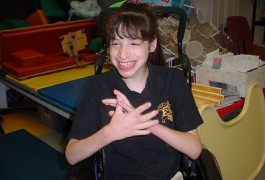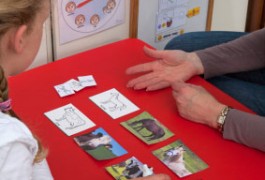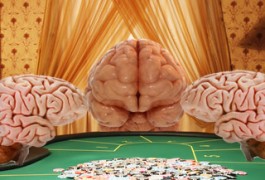Historical perspective
The debates surrounding the newest changes to the diagnostic criteria for autism have been percolating for decades, writes Sally Ozonoff in an editorial published 16 July in the Journal of Child Psychology and Psychiatry.

The debates surrounding the newest changes to the diagnostic criteria for autism have been percolating for decades, writes Sally Ozonoff in an editorial published 16 July in the Journal of Child Psychology and Psychiatry.

Identical twins are born with significant differences in the chemical modifications to their DNA, suggesting that the uterine environment can profoundly influence development and risk for disease.

Parents enroll their children in genetic research studies because of the opportunities to meet other families in the same situation, take control of their circumstances, and validate the medical nature of their child’s condition, according to a report published 11 July in the Journal of Autism and Developmental Disorders.

People with autism respond emotionally to music, they just have trouble expressing it, according to a study in the Journal of Autism and Developmental Disorders.

Studying tuberous sclerosis provides researchers with a unique opportunity to find a common pathway among the various genetic causes of autism, says neurologist Mustafa Sahin.

Delicate dosage issues are just one complication of developing gene therapy for neurodevelopmental disorders.

Early intensive behavioral therapy could save more than a million dollars over the lifetime of an individual with autism.

Childhood disintegrative disorder may be the longest-lived of childhood psychiatric diagnoses. Austrian educator Theodor Heller described it more than 100 years ago, while working in a school for disabled children he had founded with his father. That reign may soon come to an end.

Studying how and when people bluff during a poker game could help us understand how people make social decisions, according to an article in Science. The same approach could also be used to study social deficits in autism.